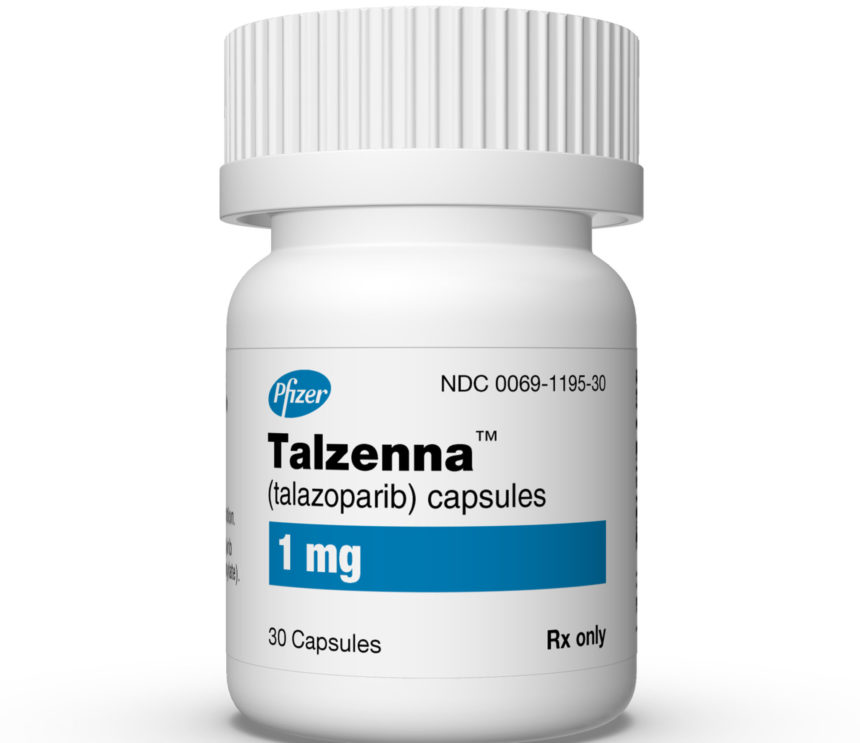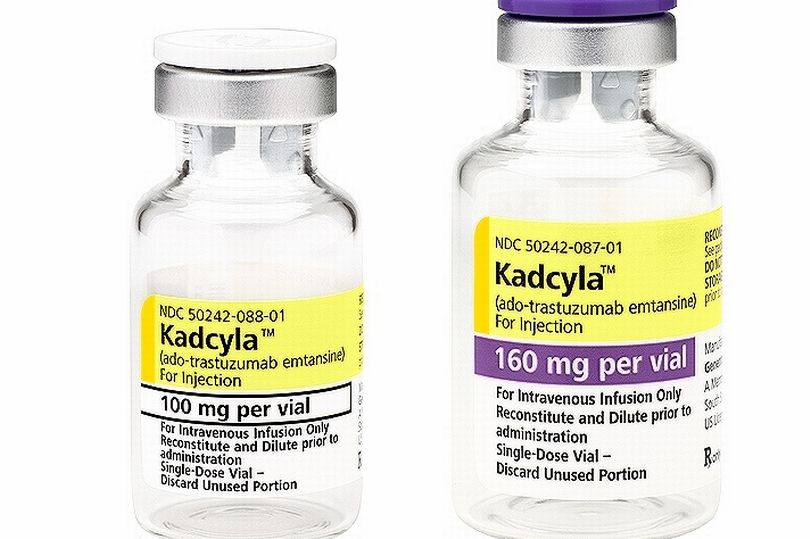Talzenna (talazoparib) vs Kadcyla (trastuzumab emtansine)
Talzenna (talazoparib) vs Kadcyla (trastuzumab emtansine)
Talzenna (talazoparib) is a PARP inhibitor used primarily to treat certain types of breast cancer associated with a BRCA mutation, focusing on the repair mechanism of cancer cells. Kadcyla (trastuzumab emtansine), on the other hand, is an antibody-drug conjugate that combines Herceptin (trastuzumab) with a chemotherapy drug (emtansine) and is used to treat HER2-positive breast cancer, targeting cancer cells that overexpress the HER2 protein. The choice between Talzenna and Kadcyla would depend on the specific genetic characteristics of the breast cancer; therefore, a patient should consult with their oncologist to determine which medication is appropriate based on the molecular profile of their cancer and their overall treatment plan.
Difference between Talzenna and Kadcyla
| Metric | Talzenna (talazoparib) | Kadcyla (trastuzumab emtansine) |
|---|---|---|
| Generic name | talazoparib | trastuzumab emtansine |
| Indications | BRCA-mutated HER2-negative advanced breast cancer | HER2-positive breast cancer |
| Mechanism of action | Poly (ADP-ribose) polymerase (PARP) inhibitor | Antibody-drug conjugate targeting HER2 receptors |
| Brand names | Talzenna | Kadcyla |
| Administrative route | Oral | Intravenous |
| Side effects | Anemia, neutropenia, nausea, fatigue, headache | Fatigue, nausea, musculoskeletal pain, hemorrhage, hepatotoxicity |
| Contraindications | None known | None known |
| Drug class | PARP inhibitor | Antibody-drug conjugate |
| Manufacturer | Pfizer | Genentech (Roche) |
Efficacy
Efficacy of Talzenna (talazoparib) in Breast Cancer
Talzenna (talazoparib) is a poly (ADP-ribose) polymerase (PARP) inhibitor used in the treatment of breast cancer. Specifically, it has been approved for patients with deleterious or suspected deleterious germline BRCA-mutated, HER2-negative locally advanced or metastatic breast cancer. The efficacy of Talzenna was demonstrated in the EMBRACA trial, a phase 3 study that compared talazoparib to standard chemotherapy. Patients receiving Talzenna experienced a significant improvement in progression-free survival (PFS) compared to those receiving chemotherapy. This suggests that Talzenna is effective in delaying the progression of BRCA-mutated breast cancer.
In addition to improving PFS, Talzenna has also shown a favorable impact on overall response rate (ORR), with a higher percentage of patients experiencing tumor shrinkage. This benefit was observed across various subgroups of patients, including those with triple-negative breast cancer (TNBC), indicating that Talzenna can be particularly effective in a subset of breast cancer patients with limited treatment options. However, overall survival (OS) data were not mature at the time of the initial analysis, and further studies are needed to determine the long-term survival benefits of Talzenna.
Efficacy of Kadcyla (trastuzumab emtansine) in Breast Cancer
Kadcyla (trastuzumab emtansine) is an antibody-drug conjugate that combines the HER2-targeting properties of trastuzumab with the cytotoxic agent DM1 (emtansine). It is approved for the treatment of HER2-positive metastatic breast cancer in patients who have previously received trastuzumab and a taxane, separately or in combination. The efficacy of Kadcyla was established in the EMILIA trial, a phase 3 study that compared Kadcyla to lapatinib plus capecitabine in patients with HER2-positive advanced breast cancer. Results demonstrated that Kadcyla significantly improved both PFS and OS, indicating its role in prolonging the life of patients with advanced HER2-positive breast cancer.
Kadcyla has also been evaluated in the adjuvant setting for early-stage HER2-positive breast cancer in the KATHERINE trial. In this study, Kadcyla was given to patients who had residual invasive disease after neoadjuvant therapy. The trial showed a significant reduction in the risk of recurrence of invasive breast cancer or death, suggesting that Kadcyla is highly effective in reducing the likelihood of disease recurrence in this patient population. The results of these trials support the use of Kadcyla as a valuable treatment option for patients with HER2-positive breast cancer, both in the metastatic and early-stage settings.
Regulatory Agency Approvals
Talzenna
-
European Medical Agency (EMA), European Union

-
Food and Drug Administration (FDA), USA

-
Therapeutic Goods Administration (TGA), Australia

Kadcyla
-
European Medical Agency (EMA), European Union

-
Food and Drug Administration (FDA), USA

-
Health Canada

-
Therapeutic Goods Administration (TGA), Australia

-
Medsafe (NZ)

Access Talzenna or Kadcyla today
If Talzenna or Kadcyla are not approved or available in your country (e.g. due to supply issues), you can access them via Everyone.org.
How it works

Make an enquiry
Choose the medicine you want to buy, answer a couple of questions, and upload your prescription to speed things up. We’ll get back to you within 24 hours.


Make an enquiry
Choose the medicine you want to buy, answer a couple of questions, and upload your prescription to speed things up. We’ll get back to you within 24 hours.


Breeze through the paperwork
We'll guide you through the required documents for importing unapproved medicine, ensuring you have all the necessary information.


Get a personalized quote
We’ll prepare a quote for you, including medicine costs and any shipping, administrative, or import fees that may apply.


Receive your medicine
Accept the quote and we’ll handle the rest - sourcing and safely delivering your medicine.

Some text on this page has been automatically generated. Speak to your physician before you start a new treatment or medication.
Let's talk
If you have any questions, call us or send us a message through WhatsApp or email:
Contact us




